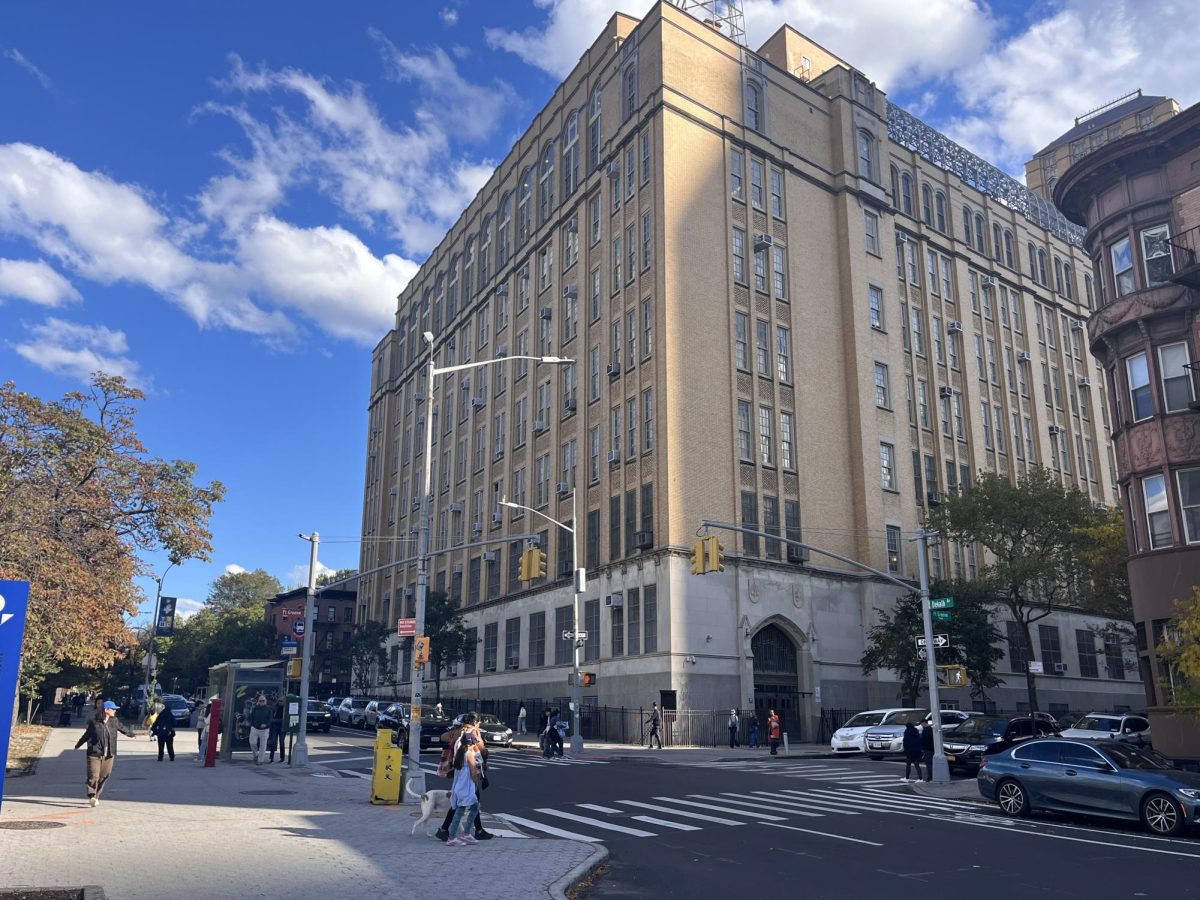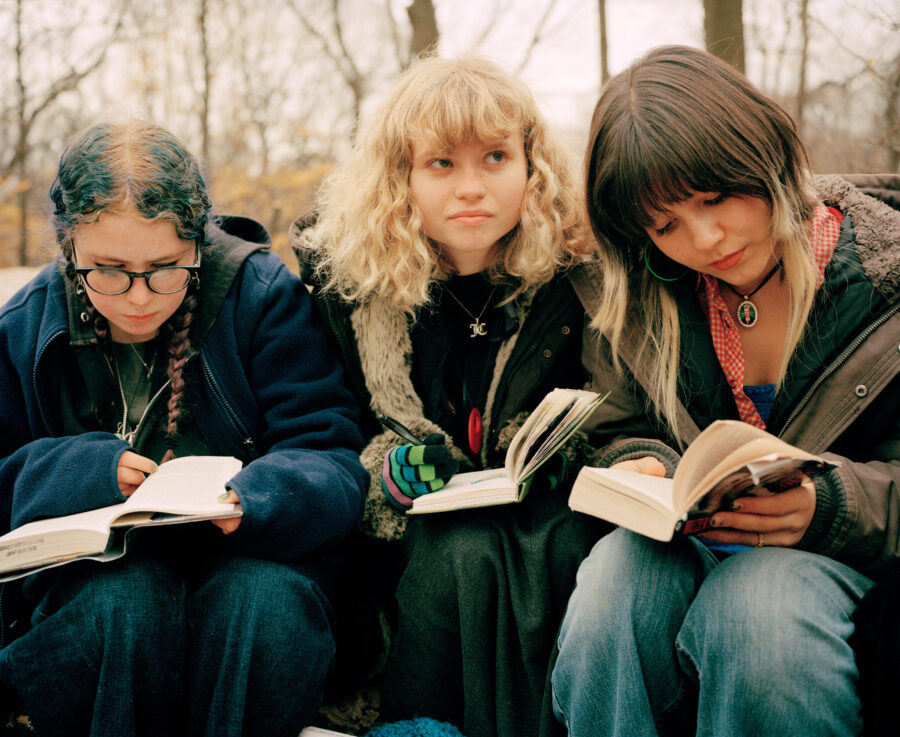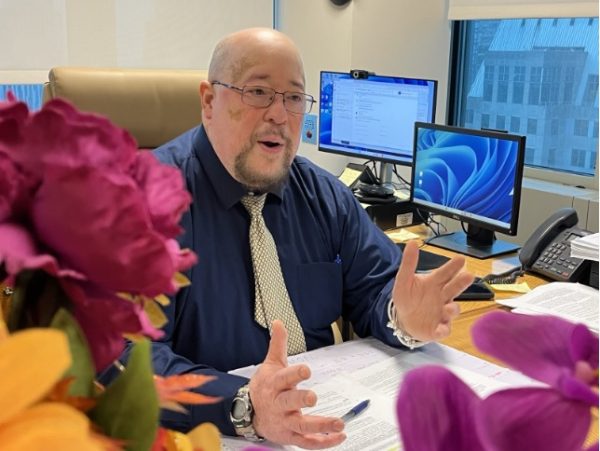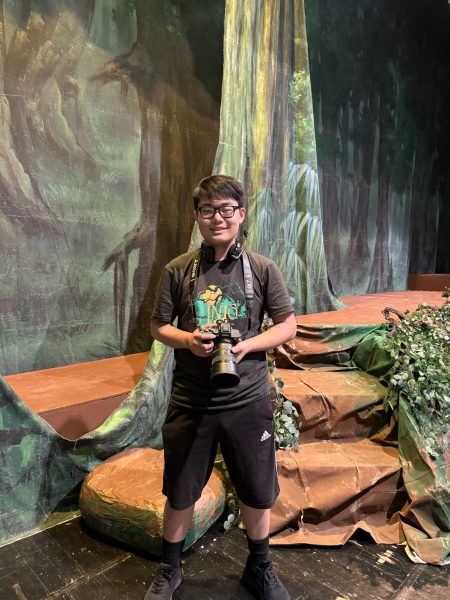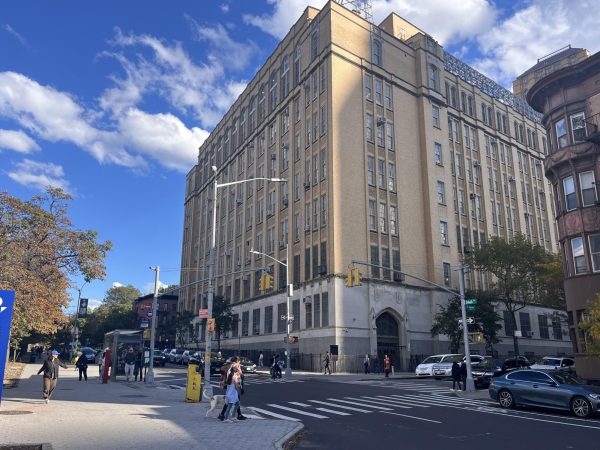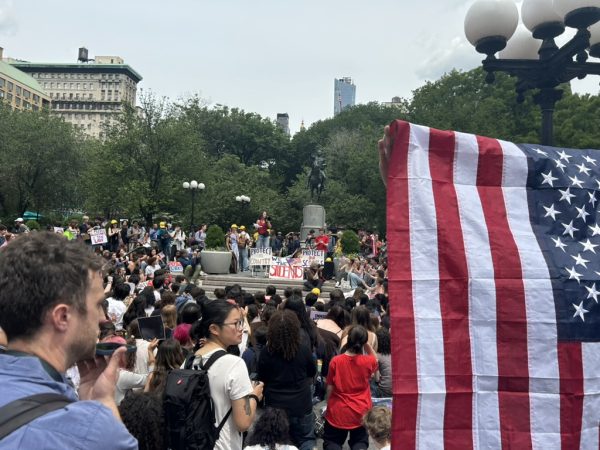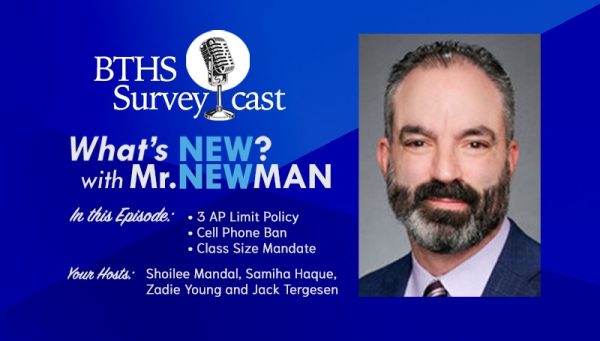Jameson Butler: Life as a 21st Century Luddite
Jameson Butler (right) at a gathering of the Luddite Club in Prospect Park.
In December of 2022, the New York Times published an article about the Luddite Club, a group of NYC teenagers who aim to deemphasize the presence of technology and social media in their lives. One of its founding members is Jameson Butler, a sophomore at Brooklyn Tech.
Butler gave up her iPhone in 2020, in the midst of the COVID-19 pandemic. She said, “[My phone] was this big part of my life that I just had never questioned before. I’d never thought, ‘what if I got rid of my phone?’”
In 2021, Butler met Logan Lane, Luddite Club founder and current senior at Edward R. Murrow High School. They first crossed paths at a concert, and then again at Prospect Heights’ Central Library, where they bonded over art, music, and a shared appreciation for smartphone-free life. They decided to start meeting up on Sundays, and from there, the club grew, gathering as many as 20 members.
“I think the reason why the Luddite Club was coming into fruition at this very moment in time was quarantine…screen usage went up and got really bad for all of us,” Butler said of the club’s origin.
Though there are no official titles or executive positions, those who have attended consistently have more authority within the Luddite Club. As many members move on from high school, a large share of their responsibilities will fall on Butler, who has been there from the start. Even when college-bound members are far away from their Sunday meeting spot, she aims to keep the connection between Luddite Club members strong. “More than anything, we’re good friends, everybody in the club. It’s not every day that you meet people with such similar principles.”
In early December, A New York Times writer heard about the club and was allowed to join one of the club’s Sunday gatherings, getting a first-hand look into a Luddite meeting. Though smaller newspapers and blogs wrote about the club, the Times article is what grabbed the public’s attention. Many adults who read the article appreciated the members’ attempts to return to a simpler life. They expressed renewed faith in the younger generation, calling them rebels or pioneers.
However, when videos about the article went viral on social media platforms such as TikTok, younger audiences voiced criticism that club’s members appeared pretentious. “I think a lot of the comments we got were like, ‘These kids are only doing it for an aesthetic. It’s a style,’” Butler said. “People see it as a trend or a fad, which bothered me.”
The article’s style, marked by romantic descriptions and whimsical photos, may have contributed to this backlash, portraying the teens more like characters from an indie movie than real people with real lives and problems. The final line of the article read, “As they marched through the dark, the only light glowing on their faces was that of the moon.”
“I don’t want [my classmates] to think I’m pretentious and annoying and better than everybody. That’s just not true. It’s my own personal preference that I’d rather have a flip phone. That doesn’t mean that I don’t want to be friends with people who are on TikTok or whatever. I really don’t care what other people are doing in their personal time,” she said.
Though Butler is committed to her current lifestyle, adjusting to a screen-free life was difficult at first. “The second I got off my phone, it was hard for the first couple of days,” she said. “I think people don’t understand that we’re chemically addicted to our phones. We are addicted to 15-second dopamine hits of scrolling on TikTok and this really quick gratification of consuming all this content.”
However, Butler’s parents worried about her safety without a phone. Despite growing up in a generation where they did not have phones, they worried about being unable to track her. Butler emphasized that her parents now put a lot of trust in her, and it is important that she always lets them know where she is.
Not having a phone or other internet devices has made it difficult for Butler to do schoolwork, especially at Tech. Although she has made agreements with her teachers allowing her to complete online classwork at a later time and makes trips to the library to do her homework, the lack of devices still affects her grades. “I feel defeated, and I’ll probably have to get a laptop,” she said. “I just don’t think having an iPhone should be mandatory.”
Despite initial difficulties, she began to see the benefits of letting go of her phone. “My quality of life genuinely, drastically increased. I felt happier, I felt freer.”
Using a flip phone changed the way Butler viewed her friendships, and how she built new ones. “[It] kind of tested the people around me,” she said. “If we can’t be friends if I don’t have social media, then we were never friends to begin with.”
Still, Butler understands that many young people use social media to make new friends. According to Pew Research Center, 57% of teens aged 13-17 have made a new friend online. Since she doesn’t have the platforms to make friends online, Butler started trying to approach people in person. She said, “Some people find it alarming when I go up to people and ask, what’s your name, what’s your number?” Butler has made an effort to be more intentional with who she connects since getting rid of her phone.
For Butler, being intentional with her life means being more present and curious. “My screen time on my phone used to be 7 hours, which now that I have that 7 hours not on my phone, there’s been all these interests that I’ve been able to dive into,” she said. Since then, she has focused on hobbies such as making art, sewing, focusing on photography, making graffiti, researching CIA interventions during WWII, and reading books such as Ireland to India With a Bicycle.
“I know that these kinds of things, no matter how small or trivial they may seem, make me happy,” Butler expressed.
Butler plans to extend this principle of the Luddites into Tech with her own chapter of the club. “[The club] is going to be more centered around time spent off the phone, doing other things: pursuing hobbies, doing art, whatever. Just a space for people to go where there are no phones and it’s just people talking.”

Kiran Yeh is a Co-Editor-in-Chief. Her journey with The Survey began during her sophomore year when she...

Lia Faynberg (she/her) is the Managing Editor and a Co-Editor of Sports. She appreciates that The Survey...




